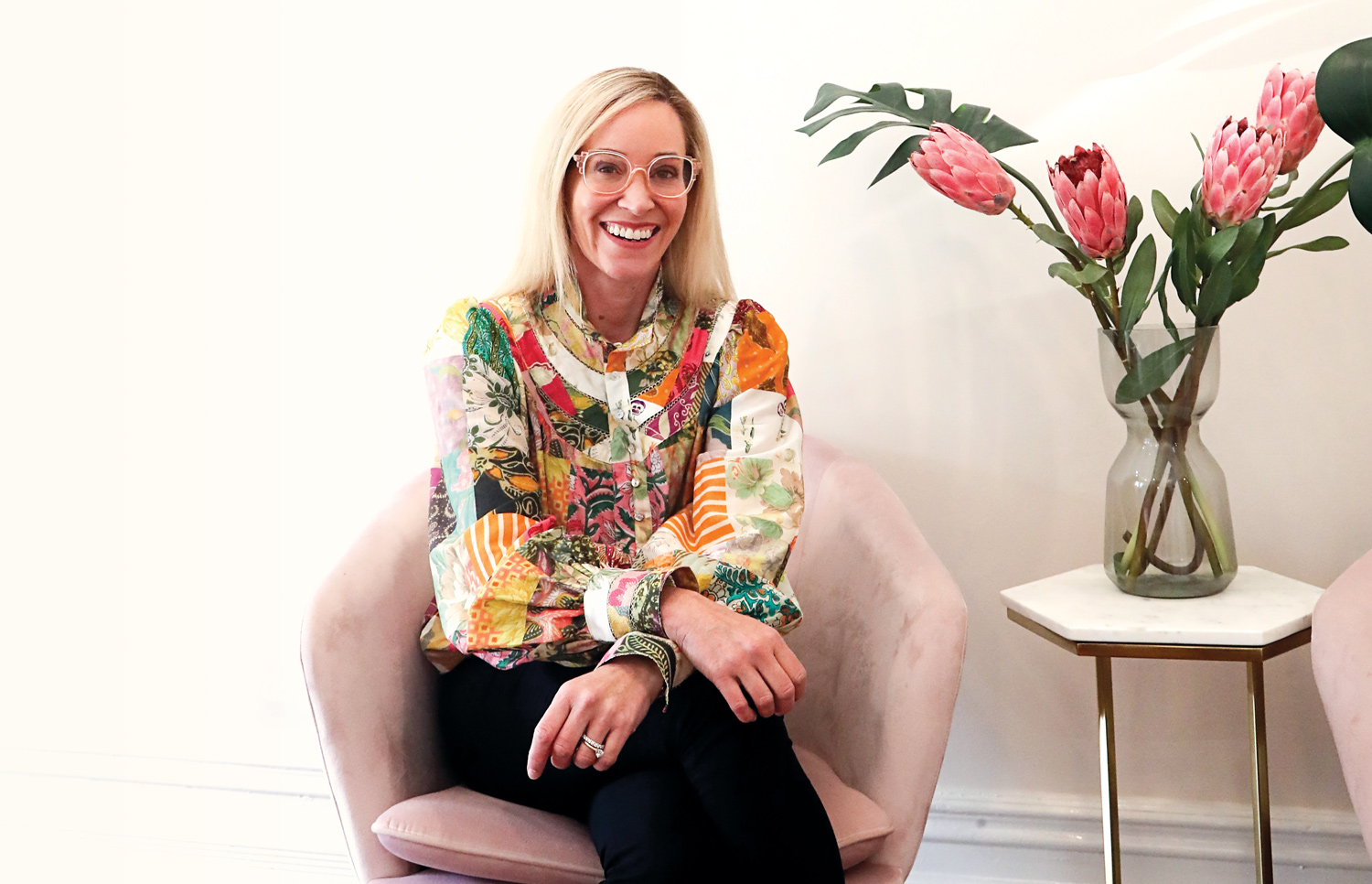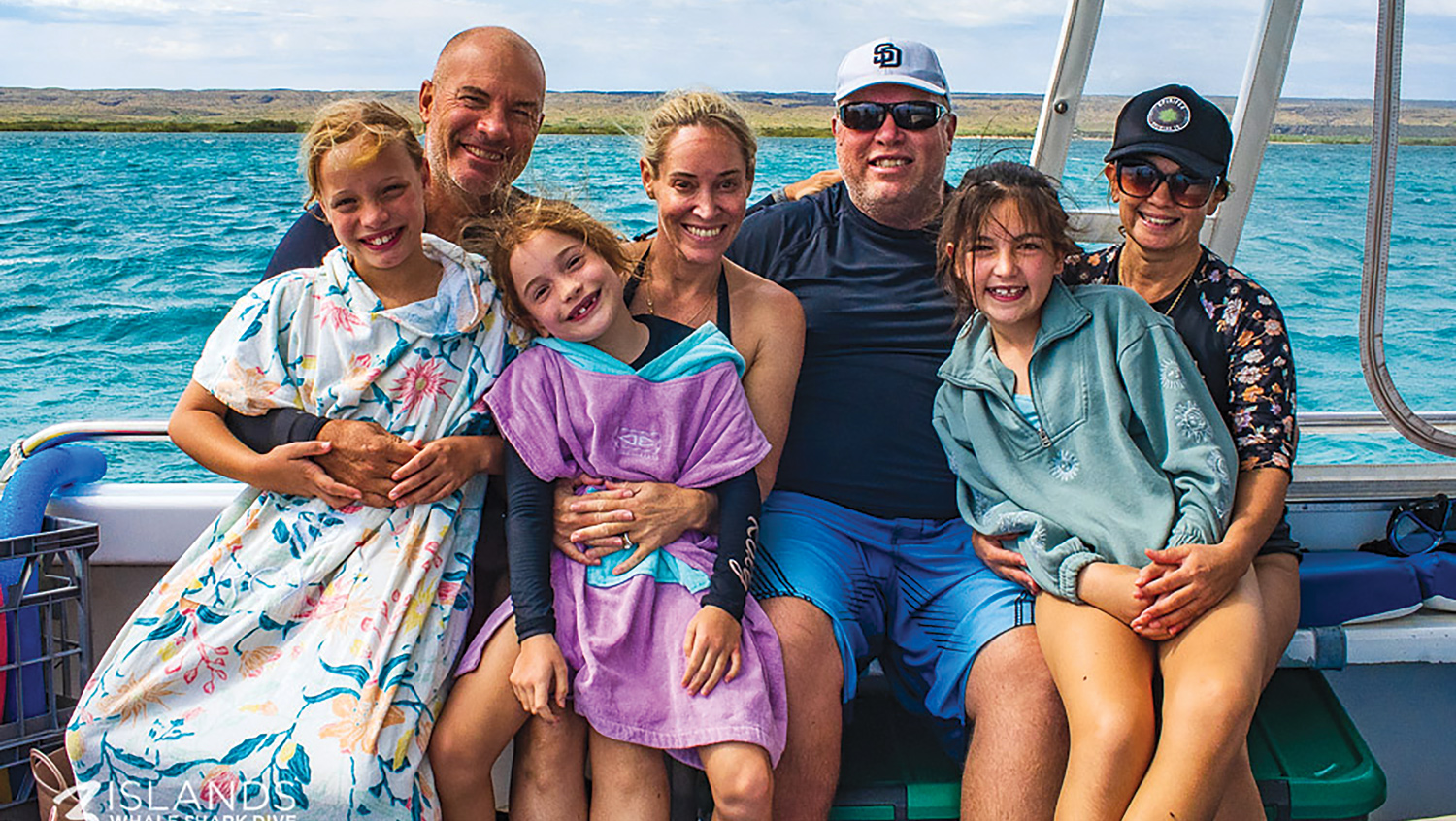 Fertility specialist Dr Tamara Hunter came to medicine as a mature-age student and has used both her previous profession and becoming a mother later in life to inform her holistic care.
Fertility specialist Dr Tamara Hunter came to medicine as a mature-age student and has used both her previous profession and becoming a mother later in life to inform her holistic care.
By Ara Jansen
Maybe it’s six degrees of separation, it’s just Perth or perhaps Dr Tamara Hunter’s dad knew something.
 The gynaecologist and fertility specialist was named after the sister of one of her dad’s high school mates. When she turned up at King Edward Memorial Hospital for Women well over two decades later to start her obstetrics and gynaecology training, she met gynaecologist Dr Tamara Walters. Co-incidentally, this Tamara was the woman she was named after.
The gynaecologist and fertility specialist was named after the sister of one of her dad’s high school mates. When she turned up at King Edward Memorial Hospital for Women well over two decades later to start her obstetrics and gynaecology training, she met gynaecologist Dr Tamara Walters. Co-incidentally, this Tamara was the woman she was named after.
“I’ve spent the last 17 years working with the woman I was named after,” says Tamara Hunter happily.
Medicine has always been Tamara’s passion but large doses of teenage angst meant the Perth-born student didn’t get enough marks to get in after high school. A career counsellor suggested human movement studies and she graduated as an exercise physiologist from UWA.
She moved to Sydney and spent a number of years working as an exercise physiologist and corporate health consultant, including assisting in the set-up and operation of Sydney Heart Image in 1999. Then at 25 she was accepted into medicine at the University of Sydney.
Expecting to feel a little odd as a mature student, she was surprised to see so many more students her age than expected, plus they were from varied backgrounds too. That definitely made the experience a little easier.
Setting her sights on cardiology, in her third year, Tamara moved to Canberra. There she met some obstetricians and gynaecologists and became enamoured with the specialty.
 “I watched this husband-and-wife team managing six children between them, alongside their busy careers and I was inspired. This specialty is a mixture of medicine and surgery. I love the frenetic nature of it – the adrenaline rush of an emergency caesarean – balanced against the investigative nature of reproductive endocrinology and gynaecology.”
“I watched this husband-and-wife team managing six children between them, alongside their busy careers and I was inspired. This specialty is a mixture of medicine and surgery. I love the frenetic nature of it – the adrenaline rush of an emergency caesarean – balanced against the investigative nature of reproductive endocrinology and gynaecology.”
She moved back to Perth in 2004 and spent time working in emergency departments on women who presented with gynaecological issues. She started training in obstetrics and gynaecology as a resident, getting into the training program in 2006. In 2012 Tamara received her fellowship and did her advanced subspecialty training in reproductive endocrinology and infertility, taking five years (and two children) to complete.
“I believe in managing the whole person when managing reproductive health and leaning into my allied health colleagues to assist in educating and empowering women around their health.”
Her passion for holistic, evidence-based reproductive care led to the establishment of Woom, a practice which cares for numerous aspects of women’s health through a collaborative team of gynaecologists, fertility specialists, women’s health GPs, dietitians, physiotherapists, psychologists and other allied health practitioners.
“I remember meeting women’s health physiotherapist Rebekah Taylor and thinking it would be amazing to have various allied health practitioners working side-by-side where there was true collaborative health care in place.
“We established Woom in 2020 and all our practitioners are passionate about women’s health and about increasing each other’s skill set. I believe by working together this way we can do a lot of good for women.”
Tamara has received two academic prizes for her work in preterm birth and in-vitro maturation. In 2011 she obtained a Certificate of Reproductive Endocrinology and Infertility, the highest qualification available to a fertility specialist in Australia.
Tamara also works as a paediatric gynaecologist at Perth Children’s Hospital and is a senior lecturer at the School of Women and Infants Health at UWA. She’s also part of Monash IVF through the Pivet Medical Centre.
 “I get great joy helping couples conceive, hand them over to my obstetric colleagues and see the end result eight to nine months later,” she says. “I have a deep understanding of struggles of infertility. Like many people in this era, I put off having a family until I had achieved a career.
“I get great joy helping couples conceive, hand them over to my obstetric colleagues and see the end result eight to nine months later,” she says. “I have a deep understanding of struggles of infertility. Like many people in this era, I put off having a family until I had achieved a career.
“I didn’t meet my husband until 34 and had my first child at 37. You never really think infertility will happen to you. By the time I came around to my second child, I was 39 and it was hard. My second child happened through IVF and was born when I was 40.”
Tamara says for a long time there was a stigma around children who were born through IVF. She encourages her patients to tell their kids, rather than keep it a secret and perpetuate a totally unnecessary psychological burden.
“Fertility treatments are a huge emotional investment and an incredible emotional challenge for a lot of people. Although many of my patients achieve their dreams, I’ve had to learn along the way that someone wanting to be a parent is not necessarily a dream I can always satisfy in the way they want me to.
“It breaks my heart that there are some patients who will walk away without a baby. I have to make sure they are as well supported as possible, and they feel they have done everything they can and have made their peace with the process – that’s really important.”
Tamara is no stranger to mainstream and social media –notably her evening Instagram live videos where she shares everything from how to handle the holidays to answering questions about progesterone in easy-to-understand language.
“I’ve become comfortable on social media and use it as a way to educate and empower. I don’t shy away from it. As doctors, we have an opportunity to use it as a way to ensure our patients are getting the right information, especially when speaking to the younger generations.”
She recently used the platform – where she calls herself Dr T – to share that she has been diagnosed with breast cancer. She’s committed to sharing her journey online, talking about her chemo treatments and talking about her “blessons”. She wants to empower women, in particular to do essential health checks, such as breast and cervical screens, making health a priority.
 “I know I’m going to be a breast cancer survivor. I have caught it early and am fortunate. Most importantly, I know it doesn’t discriminate. I’m a healthy person with great respect for my body, but I was not excused from cancer. I encourage other doctors to not put off their health checks because they are too busy. As doctors we can tend to sacrifice ourselves for our patients.”
“I know I’m going to be a breast cancer survivor. I have caught it early and am fortunate. Most importantly, I know it doesn’t discriminate. I’m a healthy person with great respect for my body, but I was not excused from cancer. I encourage other doctors to not put off their health checks because they are too busy. As doctors we can tend to sacrifice ourselves for our patients.”
She’s a believer in looking after your personal temple as well as possible. As an older parent she’s an advocate of a good diet, regular exercise and meditation. Daily exercise is Tamara’s commitment to herself as a stress reliever and strength-builder. She loves weights and does body building.
Going to bed at a sensible hour and getting up daily at 4.30am keeps that commitment to self and allows her to be present for her two daughters. While some of her habits might have to temporarily change, Tamara’s positive attitude and a desire to “grab everything with both hands” is standing her in good stead.
She and husband Mike believe education is important and encourage an appreciation and participation in sport, music and the arts in their family. They also believe in service and have let their girls choose how they want to contribute. One daughter is part of the Student2Student peer reading program with The Smith Family and the other swam 30km for charity during summer. Woom follows suit by not only donating money but expert time and knowledge as well as supporting the education of two children.
Despite the last few years, travel is high on the agenda for Tamara and her family. Now her daughters are a little older, a feature of their family trips is going somewhere they can learn about the environment. Their last trip was to the Maldives where they stayed on an island which was 100% sustainable, while swimming and snorkelling taught them about local marine life. Next on their bucket list is to go to Sarawak and visit the orangutans.

